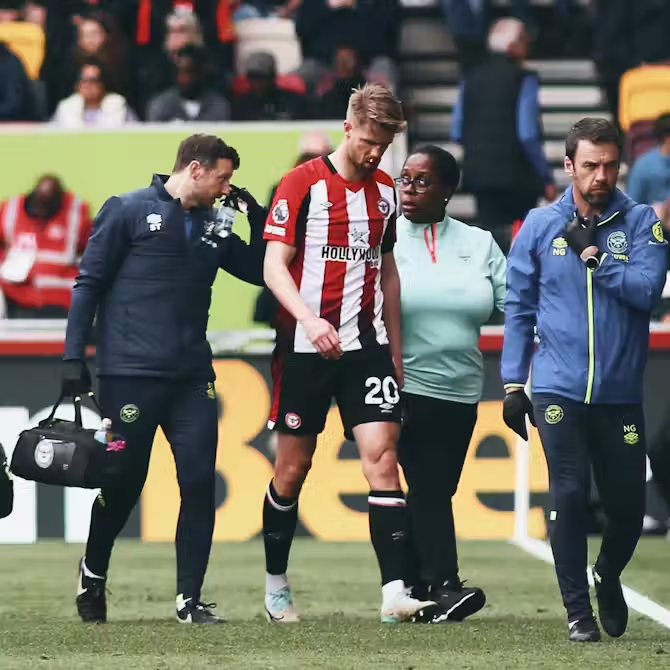Concussion Substitutions in Football: Protecting Players or Tactical Advantage?

Concussion substitutions have become a crucial aspect of modern football, aiming to protect players’ health while maintaining the integrity of the game. In this article, we talk about the concept of concussion substitutions, their implementation in the Premier League, and how Brentford utilized this rule during their match against Fulham on April 4, 2024.
To ensure player safety, the International Football Association Board (IFAB) approved trials for additional permanent concussion substitutions (APCS)
What Are Concussion Substitutions?
The goal of introducing APCS is to protect players who might have suffered a concussion. When there is any doubt about a player being concussed, they should be "permanently" removed from the match. To ensure teams don't suffer a numerical disadvantage, APCS allows for player replacements without affecting the team's normal substitutions.
How Do APCS Work?
- Assessment on the Field:
- If a player sustains a head injury, the referee stops the match.
- The player’s medical staff assess the situation on the field.
- Video Review by Tunnel Doctor:
- Simultaneously, the tunnel doctor reviews video footage of the incident.
- If clear concussion symptoms exist or video evidence confirms it, the team can apply for an APCS.
- Substitution Process:
- The substituted player cannot return to the field.
- Each team can make a maximum of two concussion substitutions per match.
- Any unused substitute from the initial list of nine can come on as a concussion substitute.
- Even if a team has already used their full allocation of three “normal” substitutions, they can still make APCS.
- The opposing team also has the right to make an additional “normal” substitution after an APCS.
Brentford’s Example: Kristoffer Vassbakk Ajer
On April 4, 2024, during the Brentford vs. Fulham match, Kristoffer Vassbakk Ajer suffered a head injury. Brentford's medical staff assessed him, and video evidence confirmed concussion. Brentford applied for an APCS, replacing Ajer with another player. Ajer could not return to the field.
APCS Advantage and Fairness
Some may wonder if teams using APCS and three normal substitutions gain an advantage. However, once an APCS occurs, the opposing team can also make an additional "normal" substitution at their discretion. Remember, player safety is paramount, and these measures aim to protect footballers while maintaining fairness in the game.
Concussion substitutions represent a positive step toward safeguarding players’ health. As football continues to evolve, ensuring the well-being of athletes remains paramount.
Brentford’s handling of Kristoffer Vassbakk Ajer’s injury serves as a testament to the importance of these rules in today’s game.
In conclusion, concussion substitutions prioritize player welfare and address potential neurological head injuries during matches. The introduction of APCS in the Premier League further ensured that players could be substituted without affecting the team's normal substitutions and without the risk of returning to the field after a concussion.